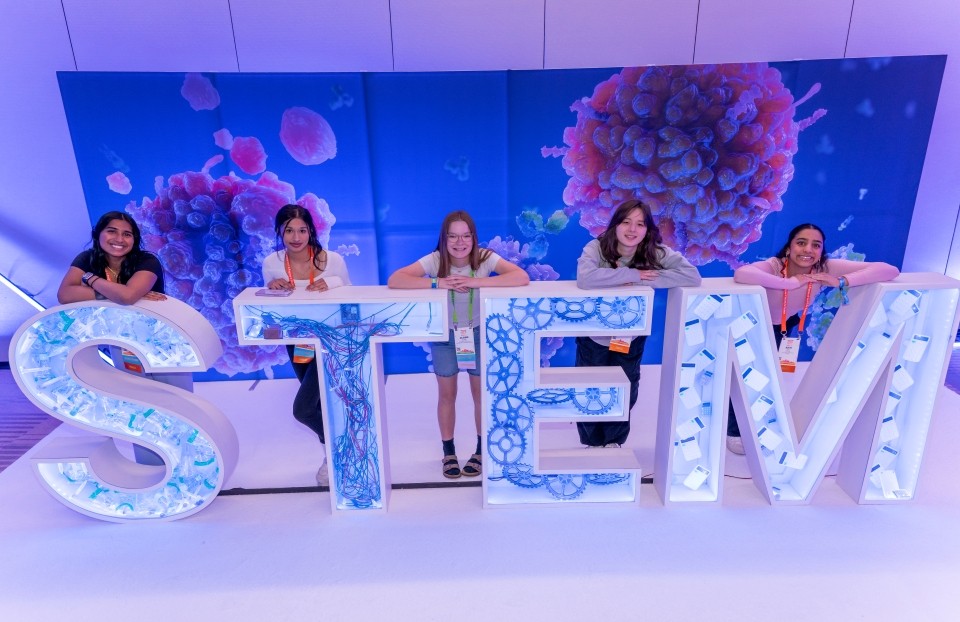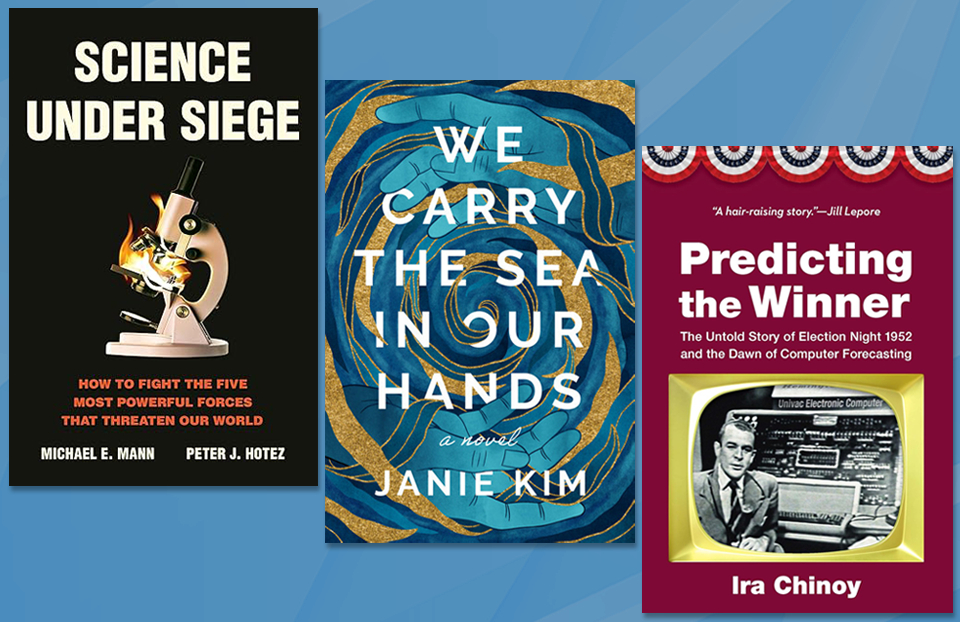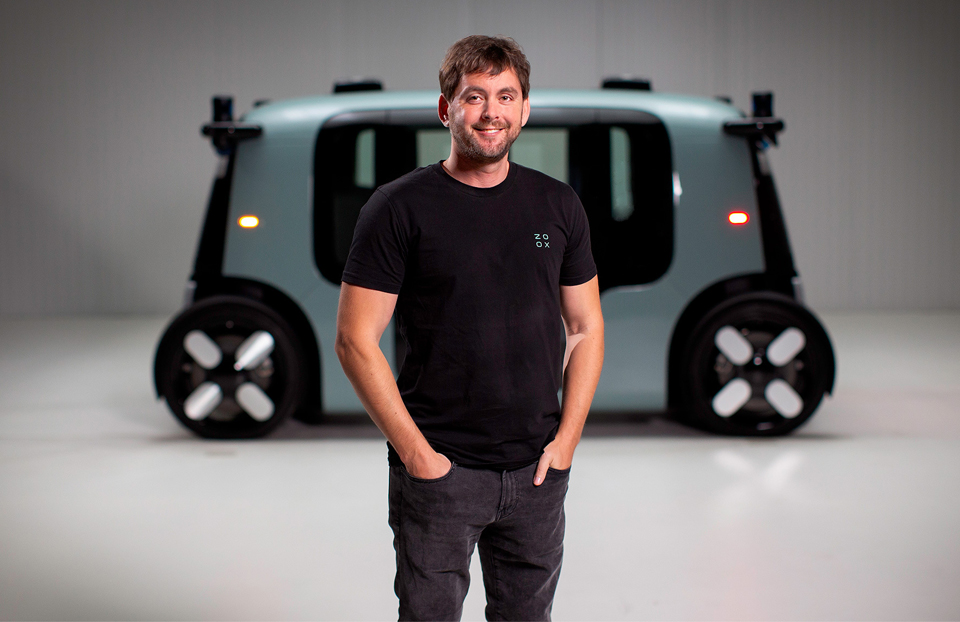Society alum Kornelia Wieczorek named to Time’s Girls of the Year list
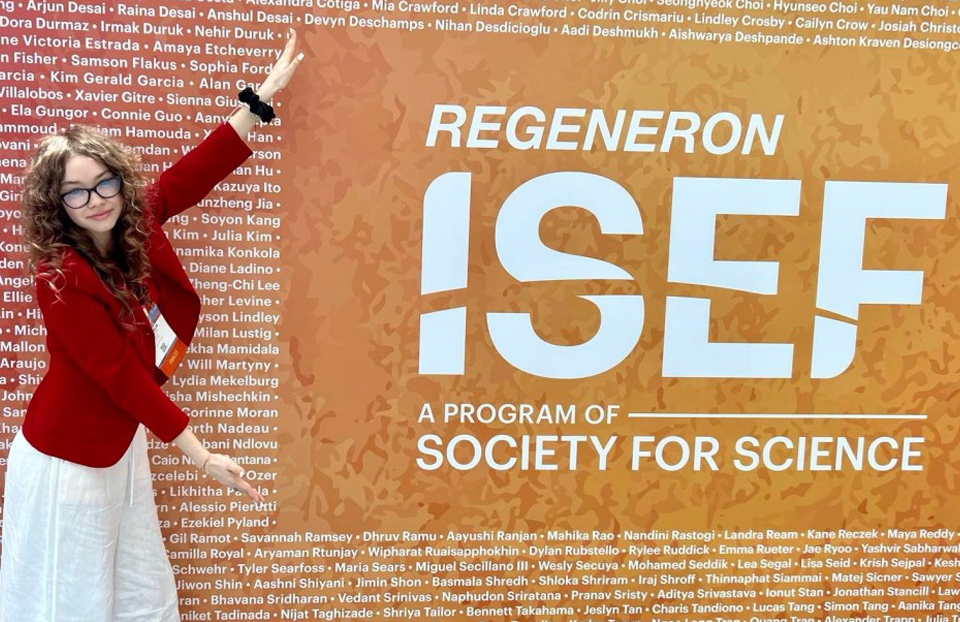
It’s just the beginning for Kornelia Wieczorek. Although she’s only 17 years old, Kornelia has made her mark on STEM — as a finalist in the 2024 Regeneron International Science and Engineering Fair and now one of TIME’s Girls of the Year in 2025.
In celebration of International Day of the Girl, a United Nations observance honoring the ongoing efforts of young women making their mark on the world, Kornelia and other inspiring girls and women are proving their impact in STEM fields.
Kornelia, along with her project partner Diana Serjant, created a fertilizer called RHIZOBIOTIC, which contributes to the U.N. Sustainable Development Goals (specifically SDG 2 and SDG 12) by reducing our reliance on chemical fertilizers while also offering an eco-friendly solution with reduced environmental impact.
Kornelia, who hails from Gdynia, Pomorskie, Poland, shared that while she views competing in Regeneron ISEF as a significant accomplishment, the highlight of her experience was the sense of belonging she felt during the competition.
“What I’ll always remember about Regeneron ISEF is that beyond the awards and recognition, it was a celebration of creating lifelong friendships,” Korneliasays. “It showed me that science is not only about discoveries, but also about building bridges between people.”
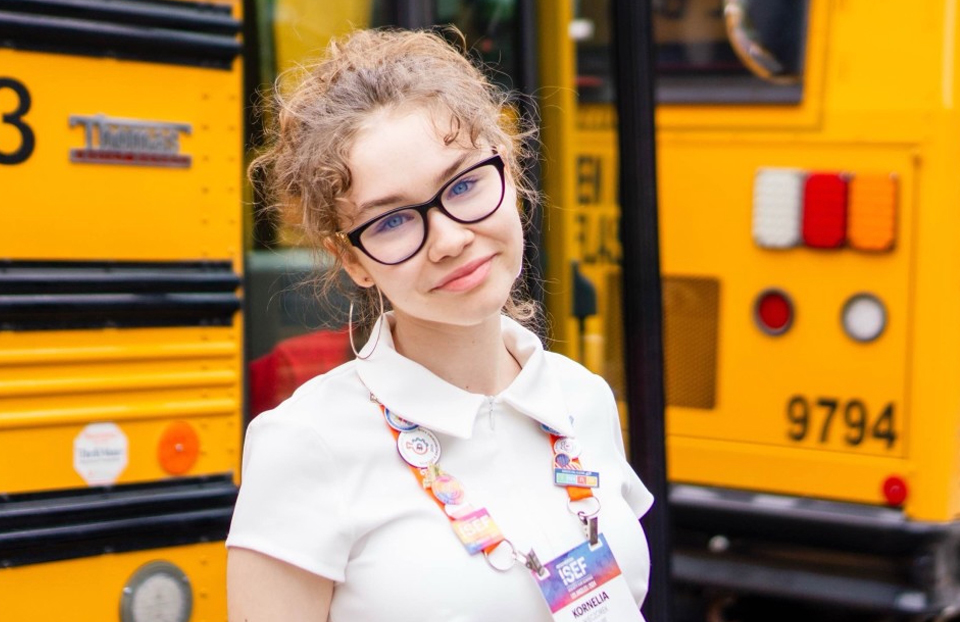
Kornelia’s first interest in science began at a young age, driven by curiosity. She was a child who wanted to understand how things work and always asked the question “why.”
At 11 years old, Kornelia started taking classes at the nearby Medical University, which shaped her academic path forward. For the first time, she had an opportunity to be in a space full of physicians, researchers and medical students.
“Coming from a family without doctors or scientists, it was the first time I could speak directly to people working in the field I was beginning to love,” Kornelia says.
According to Kornelia, becoming an ISEF finalist helped her to see that science was her calling. She says Regeneron ISEF helped her to understand that international collaboration is critical to science.

“I realized how powerful it is when people from different countries, backgrounds and perspectives come together to share knowledge and ideas,” Kornelia shares. “The conversations I had with other young scientists, mentors and judges were just as valuable as presenting my own work.”
Kornelia continues to excel in her studies and stays busy with projects that bridge medicine, technology and research. She is working, for example, on an oncological applicator for brachytherapy in cervical cancer in partnership with one of the biggest oncology institutes in Poland. The goal is to create a device that makes treatment safer, more precise and more comfortable for patients.
Kornelia has also been interning at the Netherlands Institute of Neuroscience, where she has worked on projects exploring behavioral changes connected to neuropsychiatric disorders and research related to Parkinson’s disease. Together with a professor from Harvard Medical School, Kornelia is co-authoring a paper on the use of stem cells in treating Parkinson’s disease.
“I had the chance to present this work at Cambridge University, and this summer I will be a research intern at Harvard,” Kornelia says. “This project is especially meaningful to me because Parkinson’s is such a complex and devastating disease. Stem cell therapy holds real promise for future treatment.”
While the accolades are a nice recognition for all the hard work she’s done, Kornelia says the awards and titles are not the most important thing; she’s just doing what she loves.
“I believe that broadly defined success is often only the visible tip of the iceberg, with failure, setbacks and hard work hidden beneath, so I try to celebrate achievements when they occur,” Kornelia says.
International Day of the Girl recognizes girls’ stories, amplifies their voices and advocates for a more equal world. The Society congratulates Kornelia on the TIME’s Girls of the Year list honor and looks forward to seeing what she accomplishes next!

“Now, I see my future not only in terms of personal achievements in the field of medicine and neuroscience, but also in terms of being part of this wider global community of researchers,” Kornelia says. “I want to keep asking questions, looking for solutions and using science to improve people’s lives, and I know I want to do that in an environment where ideas are shared openly with collaborative thinking involved.”
